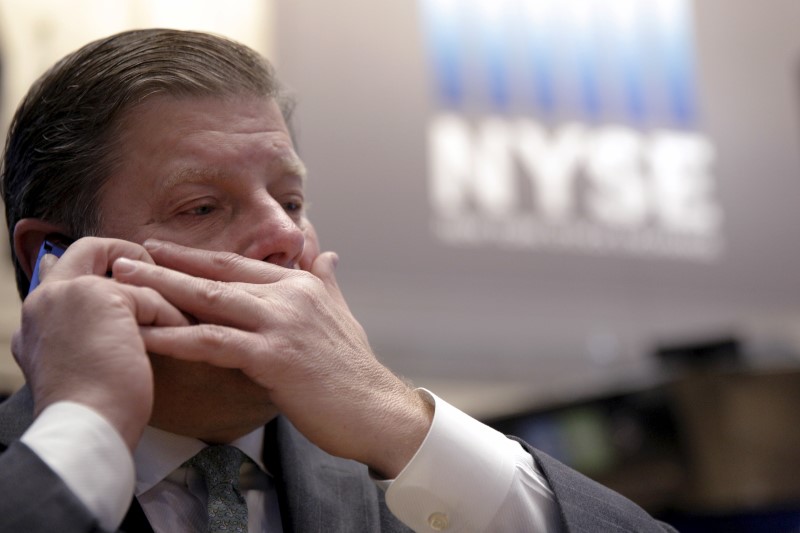By Yasin Ebrahim
Investing.com – The S&P 500 closed lower Tuesday, as banks fell even as quarterly results surprised to the upside, while data showed inflation continues to run at its hottest pace in decades ahead of Federal Reserve chairman Jerome Powell's testimony on Wednesday.
The S&P 500 fell 0.3%, after hitting a record high of 4,392.30 earlier in the day. The Dow Jones Industrial Average slipped 0.3%, or 107 points, though had notched a intraday record of 35,018.79. The Nasdaq was down 0.4%, easing from its intraday record of 14,803.70.
JPMorgan Chase & Co (NYSE:JPM) and Goldman Sachs (NYSE:GS) got their quarterly earnings underway, with a beat on both the top and bottom lines. But uncertainty over the outlook for loan demand and the backdrop of weaker U.S. bond yields stoked worries about further growth.
But financials eased slightly off their the sessions lows of the day thanks to a bounce in bond yields following a 30-year Treasury auction that pointed to signs of soft demand for bonds, pressuring prices, which trade inversely to yields.
“The auction results suggest some discomfort with 30-year yields below 2% and the heavier than average Dealer takedown suggests that there will be more bonds for sale post-auction than usual,” Jefferies (NYSE:JEF) said in a note.
Ahead of the auction U.S. bond yields were on the back foot earlier as investors shrugged off another upside surprise in inflation as transitory.
“The largest year-over-year increase in the headline and core CPI since 2009 and 1991, respectively, much of the uptick in costs continues to reflect a reopening of the economy apparel, autos, and travel – accounting for the majority of rise,” Stifel said.
The move higher in inflation could be sustained by the reopening of economies globally once the delta coronavirus variant peaks and global vaccinations gather pace.
“There have been a few fits and starts with what's gone on in Japan with the Delta variant of COVID, but I think that the reopening is real on a global basis, and it should lead to inflation going forward,” Darren Schuringa, CEO of ASYMmetric ETFs said in an interview with Investing.com on Tuesday.
PepsiCo (NASDAQ:PEP) raised its full-year outlook after delivering earnings and revenue that topped analysts' expectations amid strong quarter of growth from its North American beverage business.
Boeing (NYSE:BA) fell more than 4% after unveiling a new manufacturing quality flaw in its 737 Dreamliners.
The sudden move higher in yields, meanwhile, reined in some bullish bets on growth, though gains in Microsoft and Apple kept the downside in check.
Facebook (NASDAQ:FB), Google-parent Alphabet (NASDAQ:GOOGL), Microsoft (NASDAQ:MSFT, Apple (NASDAQ:AAPL), and Amazon.com (NASDAQ:AMZN) traded mixed.
But higher valuations in tech could keep a lid on demand for the sector, particularly against a backdrop of somewhat cheaper cyclicals stocks, which tend to perform well during the early stages of a recovery relative to growth.
“In the early stages of a recovery, value stocks tend to do better,” according to Schuringa. "I think that investors looking to de-risk their portfolio and equity exposure, wouldn’t mind taking some of their tech gains off the table. Hopefully, by investing in companies that haven't had the same run higher [as tech has], investors can lower their downside risk in the portfolio versus increasing it by either holding their positions or adding to them to protect."
The weak end to the day comes ahead of Federal Reserve Chairman Jerome Powell's two-day mandated semiannual testimony on the state of monetary policy. Powell is expected to comment on the strong reopening, though will likely continue to suggest that inflation remains transitory.
"Chair Powell likely will acknowledge the unexpectedly big reopening spike in his Testimony tomorrow, but he won’t be re-writing it. Patience will remain the watchword," Pantheon Macroeconomics said in a note.
